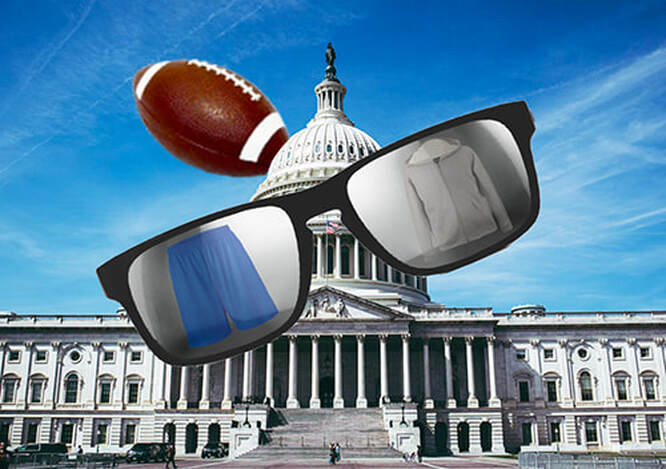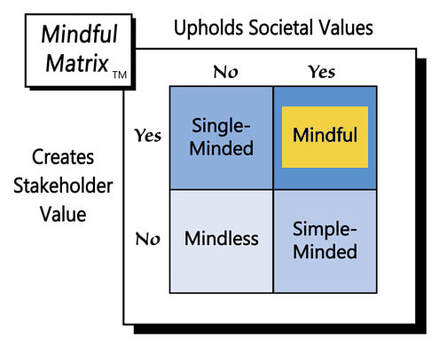author of Honorable Influence - founder of Mindful Marketing
In his first year of service from Pennsylvania, U.S. Senator John Fetterman’s casual attire (sweatshirt, shorts, sneakers) was the apparent impetus for Majority Leader Chuck Schumer’s decision to relax the chamber’s formal dress code. However, that choice was negated a week later when the Senate passed a resolution that formalized the requirement for business attire on the chamber floor.
Meanwhile, Deion Sanders, former MLB player, NFL Hall of Famer, and head football coach of the University of Colorado, has grabbed headlines with his trademark attire, specifically his shades. His propensity to continually wear sunglasses, even during interviews caused Colorado State football coach Jay Norvell to comment, “When I talk to grown-ups, I take my hat and my glasses off. That's what my mother taught me.”
At first glance, Fetterman spurring the Senate to button up its dress code and Sanders sporting sunglasses during interviews have little to do with each other. However, both headlines are case studies in nonverbal communication – People’s clothes and how they wear them often portend their personalities and purposes; similarly, individuals’ eyes often signal what they’re thinking and feeling.
Still, what do a couple of guys wearing shorts and sunglasses to work have to do with marketing? They’re relevant to the field in at least two ways:
- Internal marketing: Organizations market to their employees by trying to meet their needs, which can involve the policies they set and the procedures they follow, including ones related to work attire.
- Personal branding: Each person has a unique brand, or identity, which is based on their character and competencies and is communicated to others through their words and actions, including what they wear.
Although I feel like I know something about nonverbal communication from my business, teaching, and life experiences, I wanted to talk to someone who is truly an expert, so I reached out to Mike True, a former coworker of mine who is an internationally renowned authority on career development and an in-demand speaker on many related topics, including professional etiquette.
When I asked for his thoughts on the U.S. Senate’s dress code decision, the main word that came to his mind was “decorum,” or setting high standards in specific settings. He continued that in the senate setting, professional business attire “speaks of order, neatness, and structure,” while very casual dress “speaks of a breakdown in respect for order, neatness, and structure – It speaks of lower standards.”
Knowing the high standards True sets for himself and encourages for others, his response about Senate attire was not unexpected. However, his analysis of Sanders’ sunglasses surprised me:
“Sunglasses are part of Deion’s persona and have been for many years. He has an eyewear deal with Blenders Eyewear, so it's a ‘product placement’ gig for which he is paid. The non-verbal here seems to be practical (protecting his eyes from the sun in outdoor practices and games, and from camera flashes and bright lights in interviews) and a brand of sorts. He is Coach Prime, and as such he seeks to project ‘coolness’ for himself, his players, and the whole Colorado football program. It's working!”
I wasn’t surprised that True knows marketing and recognized successful branding and product placement. He’s a student of business and surely read of how within one day of announcing its collaboration with Sanders, Benders “received $1.2 million in pre-orders.”
I thought, though, that he might take exception with the eye contact that Sanders’ dark sunglasses eliminate. As the saying goes, the eyes are the window to the soul. When our eyes widen and our pupils dilate, we communicate interest and excitement, whereas a furrowed brow can suggest worry or concern.
However, having enjoyed True’s etiquette dinners and other events in which he detailed appropriate professional behavior from handshakes to table conversation, I know he would never advocate wearing sunglasses to a job interview or networking event. So, why the apparent double standard? Similarly, why doesn’t he cut some slack for Fetterman or other senators who might feel more comfortable in more casual attire?
First, True did identify practical reasons why Sanders might want to wear glasses to shield his eyes from bright light, while also suggesting they’re not the only reasons. In short, as True alludes, Sanders’ personal brand, even for a coach at a major college football program, is a very unique one that dates back 35+ years when he first earned the nickname “Prime Time” for his exciting play and exuberant personality at Florida State University.
As I'm sure True would never advise emerging or seasoned business professionals to emulate Sanders’ dark shades in their interpersonal dealings, the standards for Sanders’ nonverbal communication are in many ways are a category of one.
Then, why doesn’t Fetterman, who probably has a more compelling reason for wearing sweats and sneakers, get a similar pass? After all, his battle with clinical depression led him to seek treatment at Walter Reed National Military Medical Center. There may be a few reasons for a different standard:
- No slight on college football, but the business of the U.S. Senate is more important: nation- if not world-shaping policies vs. recreation or entertainment.
- Attire often reflects expectations for the level of quality of work. Even in a football game, if players wear worn-out or mismatched uniforms, fans will take them less seriously, and the players may start to feel the same way about themselves.
- Clothing needs to fit the setting and related cultural norms. People wear bathing suits on beaches not in boardrooms. People who work in and around football, like many sports, are accustomed to very casual attire.
- Dress that’s deemed inappropriate in a given situation can become a distraction. It also could be offensive if the attire reveals body parts that others don’t care to see but can’t avoid looking at when interacting with the person.
So, the U.S. Senate does have reasons for maintaining a dress code that aren’t easily transferrable to football. However, that doesn’t mean that the policies must stay the same forever: Almost two-and-a-half centuries ago, powered wigs and ruffled shirts were the style. Any organization’s dress code needs to evolve with the times.
Having a dress code also doesn’t mean that special accommodations can’t be made for specific individuals who warrant them. Those individuals and the policy also might meet somewhere in the middle, e.g., instead of shorts, full-length open-leg sweatpants, and instead of sneakers, very comfortable, sneaker-like shoes.
As has happened for me many times in writing this blog, the assumptions I had at the outset of this piece are not the same ones I have at the end, which leads me to two key takeaways that extend beyond best practices in nonverbal communication:
- Although there are certainly generalizations that can be made for personal branding, everyone’s brand is unique and there can be special circumstances that warrant some people acting differently than others.
- Make your brand a malleable one, or more specifically, allow knowledgeable others to inform your beliefs such that when fitting, you are willing to adapt judgments.
Understanding and employing effective nonverbal communication is important whether you’re calling plays or proposing national policy. Just as important is the ability to understand others’ perspectives and learn from them. Both life skills are critical inputs for “Mindful Marketing.”
Learn more about the Mindful Matrix.
Check out Mindful Marketing Ads and Vote your Mind!




 RSS Feed
RSS Feed